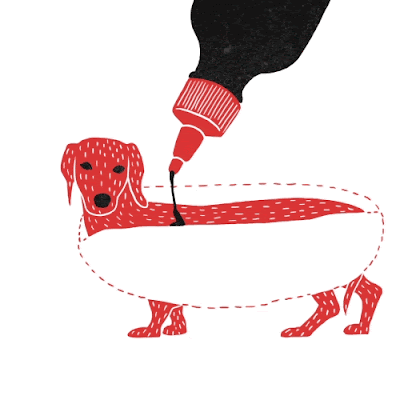New From NPR! 美國良心咖啡屋佛心來著的!
From NPR
下載聲音檔請點我
經濟不景氣,挨餓受凍的人大有人在。
其實這年頭燒殺擄掠的新聞時有所見,但是發善心做好事的人也不少。
美國的咖啡餐點屋Panera Cafe決定將旗下的咖啡店
找一間以pay-what-you-want方式經營
就是中國人說的良心+慈善商店啦
因為付錢的時候沒人在看
所以要付多少各憑良心
既然沒人看
要多付點也沒人曉得(為善不欲人知)
真正好心人士不在乎那句「謝謝您的愛心」
所以到底有多少人願意多付錢
就看消費者自己囉。
下圖為Panera Cafe的Donation box
我有幾次去Starbucks買我愛吃的甜點檸檬塔
因為一個六十五塊錢
我都拿一百找的零錢就投入捐獻箱
第一次這麼做的時候
工作人員突然全部圍過來大喊:「謝謝您的愛心」
著實讓我嚇了一大跳
我是一個很低調的人(撥頭髮)
所以第二次去買檸檬塔的時候
要投零錢之前
竟然猶豫了一下
因為我怕人家又來大謝特謝一番
真的讓我覺得很不好意思
所以我很支持像是Panera Cafe這種經營模式
自己投錢就好
做善事低調點
比較自在不是嗎?
佈施是一件快樂的事情
大家如果有餘力
記得多幫助他人
經濟學人雜誌多年前做過一篇專題
提到了達爾文的進化論
那篇報導某種程度應該是推翻了這個論點
因為歷史告訴我們
人類是善良的
多數人都會幫忙弱者
人類其實是靠著相互扶持得以繁衍至今
適者生存這個論點可能太狹隘了
所以在分享這篇文章的時候
我還是又免不了囉哩囉嗦地說了一些感性的話
請大家多幫助他人
不一定是用金錢
用時間去幫忙
用能力、體力幫忙
只要出發點是善意的都好
老人與小孩是社會的弱視族群
我們更應該多幫忙他們
老師幫同學改作文跟練習口說不收錢
是希望有需要的同學能受益
也請大家發揮這個精神
台灣這幾年經濟每況愈下
走到哪裡都聽到民眾在罵政府
我覺得與其罵總統
不如自立自強
罵人除了造口業沒啥好處
還是拿時間去幫忙需要幫助的人比較好
以下是這篇良心慈善咖啡屋的報導
Have fun reading and listening!
The Panera Cares cafe
that opened this summer in Chicago is going with a pay-what-you-want隨意付款 business model. The idea tried by others with varying success不同程度的成功模式 is to offer what the chain連鎖店 calls the Panera
experience, regardless of how much a customer can afford負擔. The company sees its string of pay-what-you-want cafes as a way of tackling hunger in
America解決美國飢餓的問題.
From Chicago
NIALA BOODHOO, BYLINE:
Laura Lamar has a morning routine: wake up, feed the dog and the cats, get
dressed, then head to her neighborhood Panera cafe for coffee, where she
expects to run into other regulars其他的常客 - in this case, Eivor, her across-the-street neighbor.
EIVOR: Laura and I come
in here every morning for our coffee. Sometimes we are imbedded in埋在/沉浸 our reading書堆裡, and we just say hi. Other mornings we get into the
food, which we both love very, very much.
BOODHOO: This Panera
has been here for more than a decade. But earlier this summer, it changed formats改變經營模式. It became a place where patrons顧客 pay what they want. A number of for-profit companies營利公司 have charitable
endeavors慈善義舉 - think of McDonald's
and its Ronald McDonald house. But Panera essentially
uses the same business model for its for-profit stores that it does for this
location, called Panera Cares.一般公司都是透過正常經營模式,有盈餘之後再做慈善活動,不過這家咖啡簡餐館,連鎖店本身經營的模式就是非營利。讓顧客自己決定要付多少錢,店家賺到的錢,扣除經營所需之後,會全數捐出
Lamar's coffee used to
cost $1.79 a cup.
Now they tell her it's a suggested donation建議要付的錢. So now she just gives them $2 and tells them to keep the change不用找零.
LAURA LAMAR: You know
it's just, what, 21 cents. It's not going to make a difference in my life, but it might
help somebody else.對我來說沒差,可是這些餘額(零錢)卻可以幫到其他人 And if everybody just gave an extra quarter or 50 cents, it would make a
difference.
BOODHOO: There's a
donation box where the cash registers used to be. This is the fourth Panera
Cares in the country, and Chicago
RON SCHAIK: They feel
like any Panera cafe in America
BOODHOO: Ron Schaik is
the co-founder and co-CEO of Panera Bread Company. He's also president of the
Panera Foundation, which runs this cafe. Schaik sees these cafes as a way for
them to help the community and to raise awareness提升意識 about middle-class
food insecurity中產階級對於溫飽的不安全感(美國經濟變差之後,太多中產階級因此失業,從過去的富足生活變成可能挨餓的一群窮人,許多人普遍對大環境以及溫飽感到不安).
Panera, the corporation公司/企業, takes existing locations - a deliberate choice, because
the company knows the store's history - then donates the entire setup to the
Panera Foundation. The money people pay for the food and coffee covers operating costs營運支出. This is a fairly unusual model for a for-profit company.
ROBERT GERTNER: It's
very rare that you see situations where company's charitable activities are a nonprofit version透過非營利的經營方式去做慈善, if you like, of what they do.
BOODHOO: Robert Gertner
is a deputy dean at the University
of Chicago
GERTNER: And that was,
at best, a mixed success.
BOODHOO: Ben and
Jerry's, at one time, had more than a dozen partner shops. Today, it has only
three. Gertner isn't surprised.
GERTNER: I think it's
something of a challenge to make it work well. I think we'll see whether it
does work for Panera Cares.
BOODHOO: Gertner thinks
Panera has a better chance of this succeeding because the typical customer
there is more likely to be able to afford and support a nonprofit cause. It may
even inspire
more loyalty from customers and employees激發顧客與員工的忠誠度, who feel like they're making a difference. And he says people are always
more likely to give toward an immediate, easy-to-understand need有急迫性且容易了解的需求, like providing a meal.
So far, like the other
locations, Panera says this cafe is getting enough donations to be self-sustaining自給自足地持續經營下去.
For NPR News, I'm Niala
Boodhoo, in Chic











作者已經移除這則留言。
回覆刪除隨喜功德、功德隨喜。不知道台灣有沒有像這樣的餐廳或商店?
回覆刪除